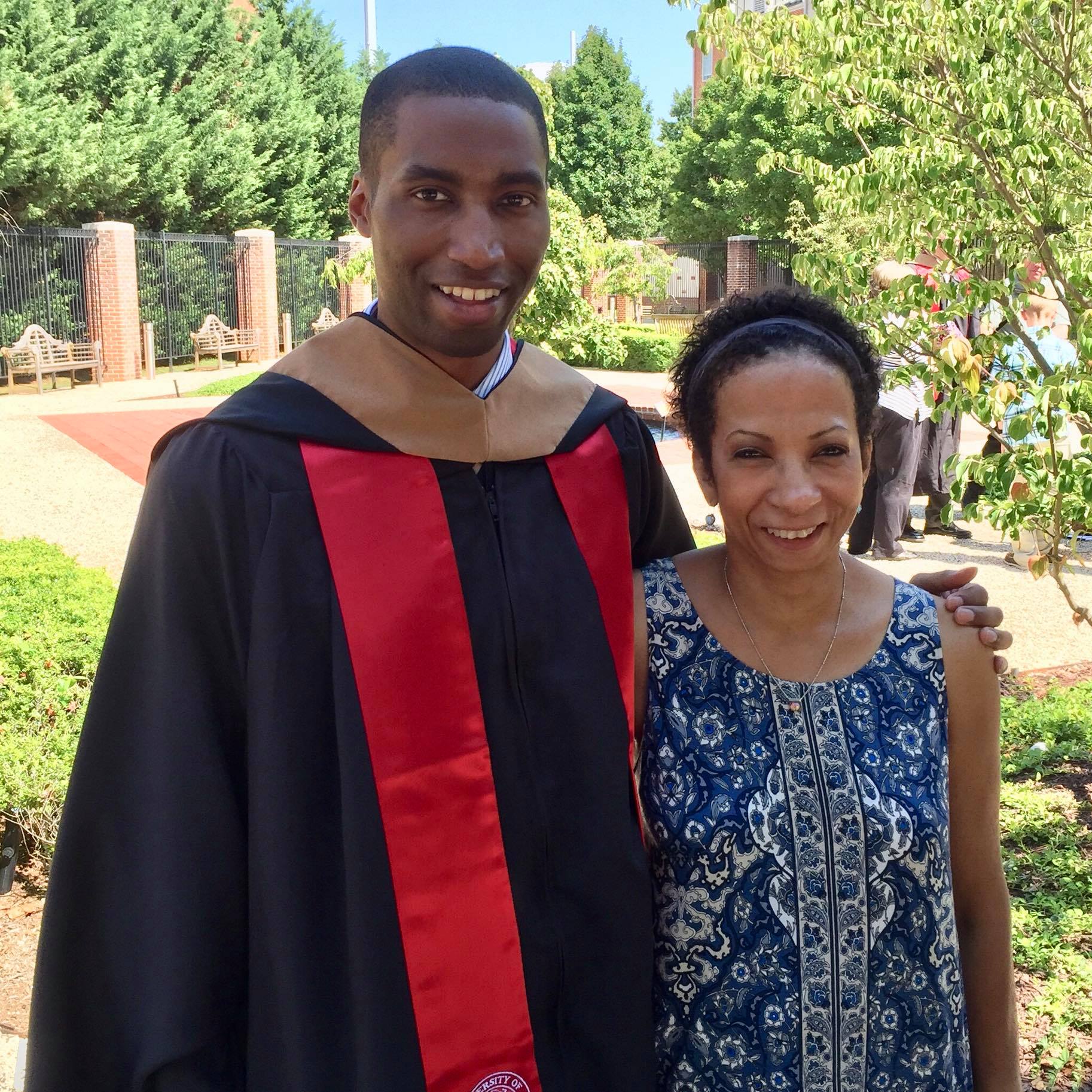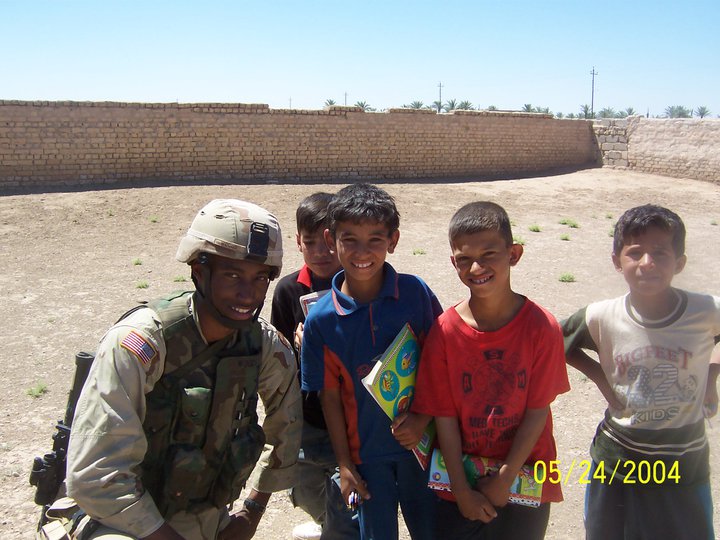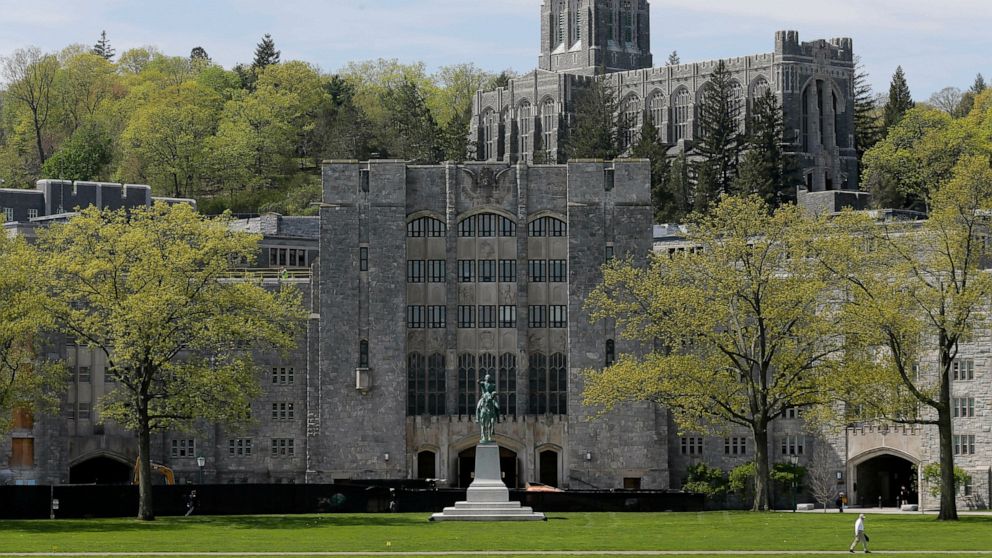So I remember coming back from that deployment and I got an opportunity to go to grad school and then go back and teach at West Point, pending successful company command. I was accepted to go to the Kennedy School at Harvard to do a master’s in public policy. And I thought that this would be a really important breather.
When I got to Harvard, all of the sudden I was in a civilian environment without those buddies and close friends who I had just had this very significant experience with. I remember being really kind of out of sorts and depressed. It’s sort of tough to be isolated in a way from the people who know what you’ve been through and so it made for a tougher start.
It also gave me an opportunity to really start thinking about myself and who I was. My entire time in the military up to that point was serving under the Don’t Ask, Don’t Tell policy which I think by that point, 13,000 members were discharged. When I was at West Point I think I had a sense that I was gay, I understood what it meant and I knew what it was but I sort of believed, no I’m not going to date or be out. I knew that this is how I was going to go through college and be able to afford college, and so I couldn’t do anything to jeopardize my career in the military or my time at West Point.
But as I went through the military and saw the diversity there, I started to realize, ‘I actually don’t really think my soldiers would care if I was gay.’ So I started to recognize that this policy is kicking people out, but this is a military that doesn’t really seem to need this policy and it’s actually quite capable of integrating people of different backgrounds.
So when I got to Harvard it was like my first chance to kind of realize, maybe I don’t need to be alone and single and closeted and hiding and lying about my identity all the time, maybe that’s not the way to live.
I think part of this came from a time when I did this cross country bike trip. When you spend 8 hours a day on a bike from Outer Banks, North Carolina to San Diego, California, you do a lot of reflecting and I think that I just realized, you know, you can’t run from who you are. Lying to your friends is not right. West Point teaches these very important values, this honor code that you live by and you should live by even when you’ve left that place and then you know I knew within a few years of me going back to teach at West Point and stand in front of cadets and this idea that I would sort of continue to lie to them because there was this policy that the military didn’t need just didn’t really make any sense to me.
I realized that the only way to make this policy go away is to stand up for what you think is right. So I came out to my commander at the time. They did some sort of investigation – I don’t know what in the world that entailed. I guess they interviewed some people to make sure I was telling the truth. And then I was discharged, fortunately it was honorable. And then I was out of the military Dec. of 2008, a little more than five years into my time.
But I realized there was a need to continue to push for this repeal because this didn’t make sense. I never ever took issue with service members or people who I served with. It always was with this policy and what the policy asked LGBT troops to do and to lie to their peers and whatnot. And so obviously advocated for repeal, it was a real honor to do so and I had the opportunity to speak on TV and write OpEds and you know even tour parts of the country talking about this stuff.
It was – I think it took awhile. Barack Obama was elected shortly thereafter and so there was sort of this perfect window to change this policy. The Obama administration was actually somewhat reluctant, you know obviously they had a lot of priorities, a lot of things going on – they were slow to enact repeal. But eventually it came, right?
So I guess that was in December 2010 – it was passed in the lame duck session. That sort of played out over the course of a couple years, and during that time I began this administrative process of actually getting back into the Army. I was excited about the service and I enjoyed that aspect; I wanted to continue serving in some capacity. And so the reserves seemed like a perfectly great way to serve but it took a long time.
It wasn’t actually until I ran totally by chance into General Tammy Smith at a human rights campaign dinner. We ran into each other and I thanked her for who she was and she said good job working on repeal and she said, hey, if you ever need any help to get back in, let me know. She handed me a card and I thought it was just somebody being nice. Turns out she was the Chief of Staff to the US Army Reserves so it was the perfect person who could absolutely help.
So that was on a Saturday, I didn’t read the card right away. I pulled it out of my tuxedo or whatever pocket on Sunday and I read her title and was like oh wow, this person can help, this is insane. Monday, I think I sent her an email. By Friday, I think the process had kicked off and the next week I had orders. But that wasn’t until Dec. 2014, something around that time frame. So it wasn’t until 2015 that I was able to fully get back into the Army reserves. And General Smith actually swore me back in which was a real honor. It was also very cool to do that with my husband.
I had full faith that service members would be very professional. That faith was very much well-placed because it was very clear that when I rejoined there was no issues, it was kind of a non-issue, people were very respectful and you know you get minor jokes here and there and people make minor comments and whatnot, like sure, and my experience is my own, I can’t speak for literally every other gay and lesbian and bisexual service member but everyone I know has had a pretty consistent experience that’s been mostly positive and very professional.
I look back on this all today, this is now over 20 years, and there’s a lot of cynicism today about where we are as a country and where we are politically. I think it’s that experience at West Point and the army – of meeting people with very different backgrounds and very different political views and realizing that all those things can go away when you bring a group of people together and you focus them on something really important or when you put them in life and death situations. I always go back to this experience in the military and realize that there’s a lot more that unites us and binds us and we too often fail to realize that. In the Army you get a random drawing of enlisted people and NCOs who work for you. And you don’t have a choice. You didn’t read their resume, you didn’t hire them, you didn’t screen them, you didn’t advertise for them, right? It is who they are and what it does is it makes you, it forces you to look for the skills – and you can’t fire them right? So it forces you to look for the best in every single person; because you are going to have to draw that out of all of them, and bring that together in a cohesive way, and build a team, and do something that’s really, really difficult- together. And that makes me hopeful.




